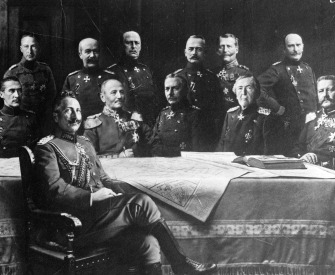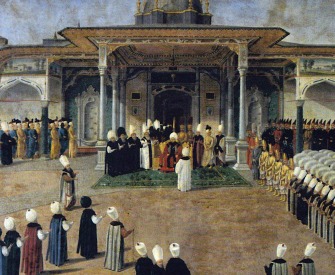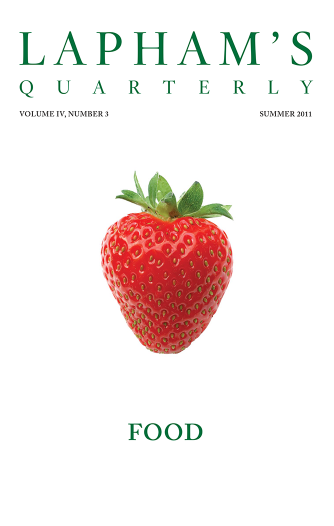What one man can invent another can discover.
—Arthur Conan Doyle, 1905Seeing Is Believing
Margaret Cavendish delights in artificial delusions.
The empress presided over the Blazing World, where the inhabitants were men of different sorts, shapes, figures, dispositions, and humors.
Some were bear-men, some worm-men, some fish- or mer-men, called sirens; some bird-men, some fly-men, some ant-men, some ape-men, some satyrs, some giants, and many more, which I cannot all remember. Of these several sorts of men, each followed such a profession as was most proper for the nature of their species, which the empress encouraged them in, especially those that had applied themselves to the study of several arts and sciences, for they were as ingenious and witty in the invention of profitable and useful arts as we are in our world. Nay, more. And to that end she erected schools and founded several societies. The bear-men were to be her experimental philosophers, the bird-men her astronomers, the fly-, worm-, and fish-men her natural philosophers, the ape-men her chemists, and the satyrs her Galenic physicians.
After inquiring into aspects of the Blazing World’s society and government, the empress desired to know the truth about the phenomena of celestial bodies. She commanded the bear-men to observe them through such instruments as are called telescopes, which they did according to Her Majesty’s command. But these telescopes caused more differences and divisions among them than ever they had before. For some said they perceived that the sun stood still, and the earth did move about it; others were of opinion that they both did move; and others said again that the earth stood still, and sun did move; some counted more stars than others; some discovered new stars never seen before; some fell into a great dispute with others concerning the bigness of the stars; some said the moon was another world like their terrestrial globe, and the spots therein were hills and valleys; but others would have the spots to be the terrestrial parts and the smooth and glossy parts the sea.
After they had thus argued, the empress began to grow angry at their telescopes, that they could give no better intelligence. “For,” said she, “now I do plainly perceive that your glasses are false informers and, instead of discovering the truth, delude your senses. I command you to break them and let the bird-men, the astronomers, trust only to their natural eyes, and examine celestial objects by the motions of their own sense and reason.” The bear-men replied that it was not the fault of their glasses that caused such differences in their opinions but the sensitive motions in their optic organs did not move alike, nor were their rational judgments always regular. The empress answered that if their glasses were true informers, they would rectify their irregular sense and reason. “But,” said she, “nature has made your sense and reason more regular than art has your glasses, for they are mere deluders and will never lead you to the knowledge of truth. I command you again to break them, for you may observe the progressive motions of celestial bodies with your natural eyes better than through artificial glasses.”

Vanitas Still Life, by Edwaert Collier, 1662. The Metropolitan Museum of Art, Purchase, 1871.
The bear-men, being exceedingly troubled at Her Majesty’s displeasure concerning their telescopes, kneeled down and in the humblest manner petitioned that they might not be broken. “For,” said they, “we take more delight in artificial delusions than in natural truths. Besides, we shall want employments for our senses and subjects for arguments. For were there nothing but truth and no falsehood, there would be no occasion to dispute, and by this means we should want the aim and pleasure of our endeavors in confuting and contradicting each other. Neither would one man be thought wiser than another, but all would either be alike knowing and wise, or all would be fools. Wherefore we most humbly beseech Your Imperial Majesty to spare our glasses, which are our only delight and as dear to us as our lives.”
The empress at last consented to their request, but upon condition that their disputes and quarrels should remain within their schools and cause no factions or disturbances in state or government. The bear-men, full of joy, returned their most humble thanks to the empress.
Audio brought to you by Curio, a Lapham’s Quarterly partner

Margaret Cavendish
From The Blazing World. A Royalist who went into exile during the English Civil War, Cavendish moved back to England after the Restoration began in 1660, having already made a name as an outré writer; a few years later she published this novella to accompany a treatise she had written on experimental philosophy. “There is something noble and quixotic and high-spirited,” Virginia Woolf wrote about Cavendish in The Common Reader, “as well as crack-brained and bird-witted about her.”




